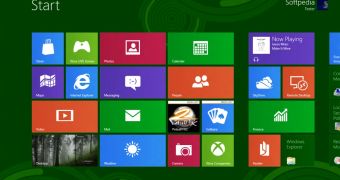In addition to the wide range of other changes that the almost-here Release Preview of Windows 8 is expected to pack in terms of performance and visual design, there might also be some that could make some users very unhappy.
Apparently, Microsoft has decided to put an end to the possibility to come up with third-party apps that recreate the classic start menu on Windows 8.
The company will remove the legacy code that enabled enthusiasts to offer such software in Windows 8 Developer Preview or Consumer Preview, and it will all start with the next flavor of the platform Release Preview.
When this OS version arrives, something that might happen today or tomorrow, rumor has it, the Start Button and the Start Menu that Windows users grew attached to will be gone for good.
In fact, the Redmond-based software giant is expected to make a similar move for other software that might have made the new Windows 8 flavor resemble the older platform releases, a recent article on WinSupersite reads.
The new Metro Start Menu is here to stay, and all customers, including end-users of business grade ones, should get accustomed to that. No one will be able to boot directly into the Desktop mode starting with Windows 8 Release Preview, and the same will apply to Windows Server 12 as well.
Of course, Microsoft designed Windows 8 to work great on devices featuring touchscreen displays, but that does not mean that the same design principles would fully apply to traditional PCs using a keyboard and mouse for input.
While this observation was made quite a few times before, it seems that Microsoft chose to ignore it. Furthermore, the company is so confident in Windows 8’s Metro UI capability to appeal to users, that it even said recently that users will learn to live with it.
The question is not whether that will indeed happen or not, but rather whether Microsoft will indeed manage to revolutionize the PC market with the inclusion of consumer-oriented mobile technologies into its core Windows products.
At the moment, Windows holds the largest market share in the PC, and its availability on tablet PCs and other mobile-centric devices should help it gain some more ground.
But with many “traditional” users protesting against the domination of the Metro interface in Windows 8, it remains to be seen whether the platform will indeed succeed becoming popular enough in the desktop segment to enjoy massive adoption in the consumer and business areas alike.

 14 DAY TRIAL //
14 DAY TRIAL //